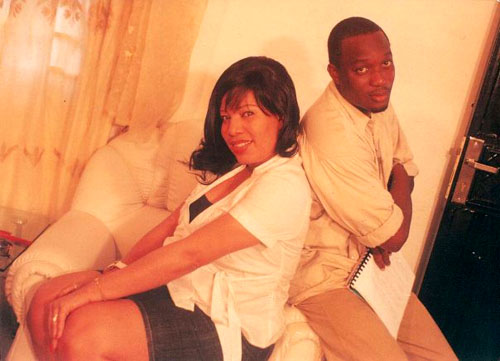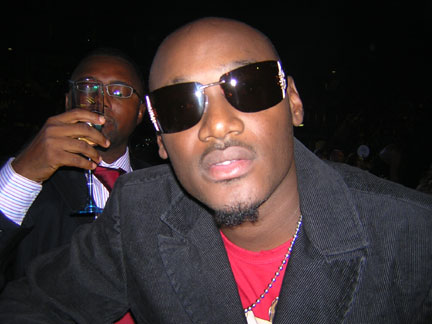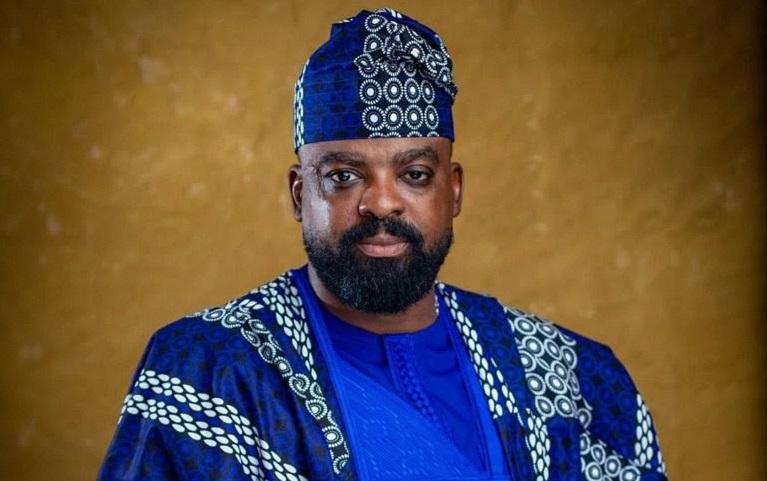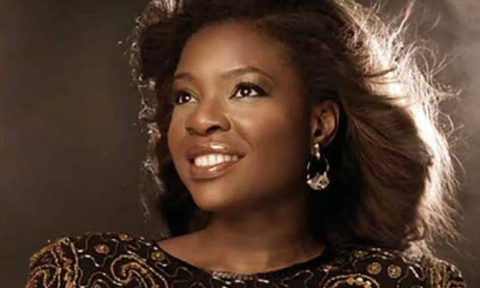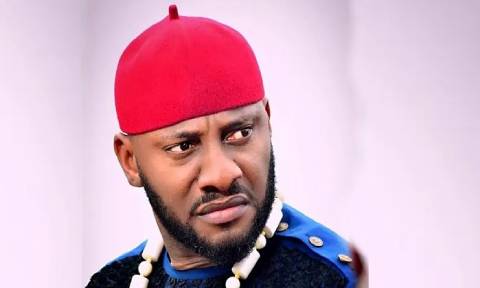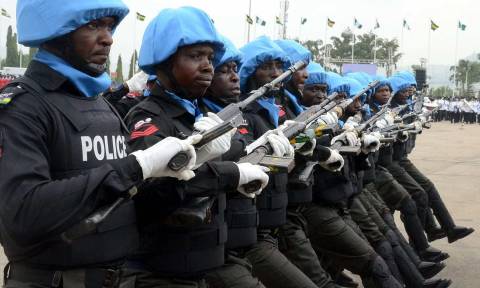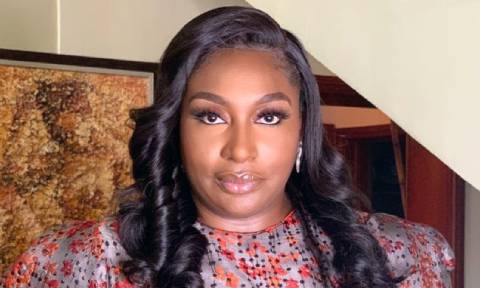You can’t talk of action movies in Nigeria without giving generous credit to producer/director, Teco Benson. REPORTER, Ifeoma Meze, spoke to him about his career and the politics in Nollywood
How did you start this career that you have come to love so much?
I came into the film industry in 1994. Prior to my entry, I was a civil servant. The film industry came to light when Living in Bondage was released. I saw the movie and I felt this is where I should be, so two years after, I found myself in the industry but I was working and at the same time getting involved in acting. I first came in as an actor to study the industry. When I was getting into the industry, I was coming with a vision primarily to use the film as a medium of change to the society. I saw myself as a change agent even before I started acting. I like seeing the society function better. I like seeing people live morally. I like seeing a sane society. I feel bad that I come from a third world country, so whatever that I can do to make my country move forward and get into the league of the first worlds, I will be wiling to do that. All these are the driving forces that brought me into the film industry because I realise that film is a powerful medium that can cause a positive change. It can also have some negative effect if you apply it negatively. So, I started from acting. From acting, I understudied the industry and went into producing. I produced lots of movies. From 1996 I did lots of production until 1997 when I added directing into my work. Since then, I think I am happy that I took the decision because when I was about to pull out of the civil service to go into the movie industry full time, I was scared. I was scared because I was receiving regular monthly salary, which gave me some kind of confidence. As at that time, I have never taken such a risk to be on my own, become self-employed, so it was a very hard decision to take. I took sometime within myself before I took that decision and the decision has really paid off. I think I am happier now, not because of money or anything but I am fulfilled somehow that I have gotten into a part of my destiny because I believe to every man, there is a purpose for which God has brought you here. By identifying with the industry, I have aligned myself into the part of my destiny. Money did not drive me into the business; it was the vision and passion I have for movies that brought me into it.
What was your portfolio in the civil service?
I was working with Anambra State Environmental Protection Agency. Initially I was in the health department because I read public health originally. From the health department, I went ahead to become the personal assistant to sole administrator before 1997 when I went into movies fully.
Was it difficult for you to drop acting to go into producing and directing?
No. Acting comes with a lot of fame; people recognise you and hail you “oh I just saw your movie.” You feel good within yourself but I asked myself a question. I came here with a vision and that vision is to cause a change, am I achieving it as an actor? I asked myself that question. As an actor, I saw that any script that any writer brings, you just go an act whether it is negative or positive. You don’t know the producer’s motive. It might be something that is not even up to the kind of standard you want to maintain but because you must put body and soul together, you have to accept the job to earn a living. I realised that if I am a director and a producer, I can decide the script I want to shoot. I can decide the content and message I want to pass across. I can even decide to write my script myself, I can decide to buy script from the best person and make it better. I make sure that every movie that I do conform to a particular message. I am a Christian and I like to observe high standard or morals in my movie. There must be triumph of light over darkness in any film I do. That is the kind of film I like doing and that was why I moved from acting into directing. It was not an easy decision to take for a young man but because of my vision, I decided to stand strong on that vision and today I am not regretting.
What project are you handling presently?
I just finished a movie that we did in India. The title for now is Namaste Naija but that is not the final title. I believe that before it comes out, it will have a different title. We are handling the post production of the movie right now. I am no longer in a hurry to churn out films because I want to make sure that everything I do presently has something strong. It should have some strong message and strong impact in the society. I don’t want to churn out movies, that is why in a year I might just make one movie or two. People often ask me why they don’t usually see my face in the industry again.
It is obvious that there will be both Indian and Nigerian actors in the movies, can you tell us the artistes we are to expect?
For Nigeria, we have Yemi Black, Lilian Barc, Monalisa Chinda, Kalu Ikeagwu, Alex Usifo, Barbra Soki, then from the Indian side we have Vinee and some other prominent Indian actors.
Do you also consider that part that most movies now go to the cinemas first before it’s fully in the market?
I started the cinema journey in Nigeria. It was my partner, Andrea Gbinigia and I, when we did Mission To Nowhere. We released Mission To Nowhere in Nigeria, Scotland, London and Dublin. We released it on 35milimeter. The movie was in all the cinemas. It was only Silverbird that has them in Abuja and Lagos; Genesis had not come by then. Before The Mission To Nowhere, it was Jeta Amata’s Amazing Grace that was in the cinemas. So what we started is what others are now going into. Cinema is the hope of the industry. The only problem we have is that we don’t have many cinemas. For now, we just have about six cinemas in the whole country, which is not enough to guarantee returns in your investments. We are hoping that more investors will go into building more cinemas but the truth is that a lot of people are not going to make it in the cinemas. It is only the good film makers that would make it. The cinema will sieve the industry
How difficult was it for you to convince people to come to cinema to see watch Nigerian movies at that time?
It was very difficult. When Nollywood started, we killed foreign movies. It was only Nigerian movies everywhere, foreign films died but when cinemas was called back, they brought back Hollywood movies again and mostly people in the highbrow areas were going to see these foreign movies. People were reluctant to pay such amount to see Nigerian movies, which they know they most definitely will see on local stations and VCD but we laid that foundation and today people are beginning to recognise the hard work we put into bringing Nollywood movies back to cinemas.
Which party of the country did you grow up and how would you describe your childhood?
My dad was a civil servant and he was also neck-deep into Christianity. I grew up in the present Enugu State. My childhood was much disciplined. Everyday you must go to Church, even when you had that tendency to go and play around with other kids. You are forced to go to Church. When my mates were playing football or following masquerades, my dad would never allow you play around or dance. I grew up in that kind of environment. It was hard then but today when I look back I appreciate the kind of dad I had because I think those things helped to mold me and make me what I am today. Today, I am a father as well. I have four children, all boys and I am trying to borrow a little of some of the things that I passed through. I was rough as a child, very rough. I was adventurous but today I am opposite of what I was when I was a child.
What expectation do you look forward to for the betterment of the industry?
I am looking forward to a time when the industry will put aside its differences and come under one umbrella and speak with one voice. People say united we stand and divided we fall. There is so much division in the Nollywood industry. We cannot fight over anything let alone piracy if we are divided. We should put aside our ethnic differences and see ourselves as one body. We are supposed to be one industry because it is one country. If we have Actors Guild of Nigeria, whether you are Hausa or Yoruba you must belong to the group and any decision taken should be binding on everybody. I also look forward to when cinema culture will go back to what it used to be in the 80s before it died due to lack of security for nightlife.
Is it because of the divisions that you have not really contested for any post in the industry?
A lot of people asked me last year to come into the presidency of Association of Movie Producers (AMP) but there were so many political impulse I saw and I withdrew because I am a very peaceful person. I decided to let go of that for now because I know that my leadership attention will be needed when the industry is saner. I believe that we will get there sooner.
Do you also shy away from the real politics?
I know I will end up a leader one day.
Do you intend running for any public office?
I have the plan but I believe I may come up the Jonathan way because I cannot see myself playing politics the way it is played. I know I am destined to be there but how I will be there, I don’t want to think about it. From what I am seeing, I don’t think I can play the game the way it is done now. I know I am a leader, I think I am born with it and no matter how I want to run away from it, it will catch up with you.
